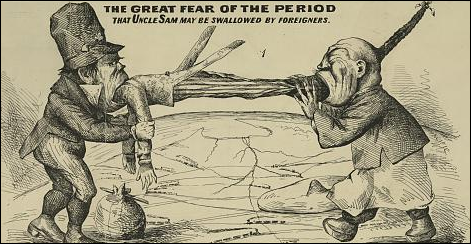In this week’s lecture I was introduced to ‘The Conscience of a Hacker’ a manifesto written by hacker called +++The Mentor+++ in 1986. Reading it I couldn’t help but be reminded of the ‘The Cyberpunk Manifesto’ written by Christian Kirtchev in 1997. I took the liberty of chopping a few bits of each to highlight their similarity.
This is our world now, the world of the electron and the switch, the beauty of the baud… We make use of a service already existing without paying for what could be dirt-cheap if it wasn’t run by profiteering gluttons, and you call us criminals. We explore and you call us criminals. We seek after knowledge and you call us criminals. You build atomic bombs, you wage wars, you murder, cheat, and lie to us and try to make us believe it’s for our own good, yet we’re the criminals…You may stop this individual, but you can’t stop us all- after all, we’re all alike.
We are the ELECTRONIC MINDS, a group of free-minded rebels. We live in Cyberspace, we are everywhere, we know no boundaries. We are those, the different. Technological rats, swimming in the ocean of information… We are the student hacking computer systems, exploring the depth of his reach…Our society is sick and needs to be healed. The cure is a change in the system… We fight for freedom of information. We fight for freedom of speech and press…. We are a unit. We are Cyberpunks.
This was my first time reading ‘The Conscious Hacker’ but ‘The Cyberpunk Manifesto’ is something that I have read countless times before as I am obsessed its anarchist undertones and the idealistic sense of freedom it promises. After looking at the two comparatively it really made me notice how hacking is so closely tied to cyberpunk ideologies. In cyberpunk novels the outcast anti-hero inevitably breaks all the rules in order to take down the evil establishment and save the world from its villainous clutches. While this is an epic perception of hacking that after watching films like Hackers and shows like MR Robot I so desperately want to be true, I have to ask myself, can the act of hacking ever be as justified as it is in cyberpunk works of fiction? Can the real world be broken down into black and white simplifications of heroes vs villains? Is there really such a thing as Hacktivism?
So this week I set out to determine what the ethical perspectives of hacking are. There are those that see hacking as a way of standing up for injustices and liberating people from imposed censorship. This act of hacking is seen as justified by the perpetrators as they believe the censorship is unfairly enforced and therefore a law that deserves to be broken. An example of this would be the collaboration between The Cult of the Dead Cow and The Hong Kong Blondes who launched attacks against the Chinese government to protest government censorship of Internet content. They compromised a firewall system in China, allowing Internet users in that country unrestricted access to the Web for a brief period of time and they also defaced several Chinese governmental websites.

Hacktivism is often confused with cyberterrorism but a boundary between the two can be drawn depending on one’s definition of ‘damage’. It is important to remember that not all hacking involves breaking into systems, spying or even damaging data. Hacktivisim can be as simple as a denial-of-service attack where all that occurs is a mass volume of people generate so much traffic on a website that it crashes and no legitimate users can access it. This type of hacking is seen as a mere extension civil disobedience into the internet realm. “Civil disobedience entails the peaceful breaking of unjust laws, it does not condone violent or destructive acts against its enemies, focusing instead on nonviolent means to expose wrongs, raise awareness, and prohibit the implementation of perceived unethical laws by individuals” (Manion & Goodrum). In this instance the hackers see no difference between this and picketing in the street to deny people access to a building. “Activists here are attempting to bring about social change through non-violent means; whereas activists in the past trespassed and blockaded physical positions of power, hacktivists now would seize control of the new positions of power—cyberspace—and without all those nasty guns, water cannons, dogs, billy clubs and tear gas” (Julie Thomas).
There are those however who believe denial-of-service attacks to be against the hacker code because they themselves are a form of censorship and violate the right to free speech- which in the true roots of the hacker culture is a fundamental law that must never be broken (even if it is against your enemies). One of the world’s most famous hackers who believes whole heartedly in this ideal is Julian Assange, he has no qualms about sneaking into closed systems and revealing private information but does not believe in the destruction of information in any way. Assange is practically a pure personification of the old school hacker mentality in that he is a utilitarian extremist who promotes the total transparency of information. To him, his actions are justified because as all information should be free regardless of consequence. What people chose to do with the information does not change the fact that it should not be kept hidden. Absolute truth is the only moral decisional direction.
In the end the ethics of hacking all comes down to the age old question of does ends justify the means? While different hackers have different codes of ethics and different definitions of damage, every act is circumstantial and instead of being broken down into wright and wrong should be judged in term of what was stood to be gained and at what cost?









